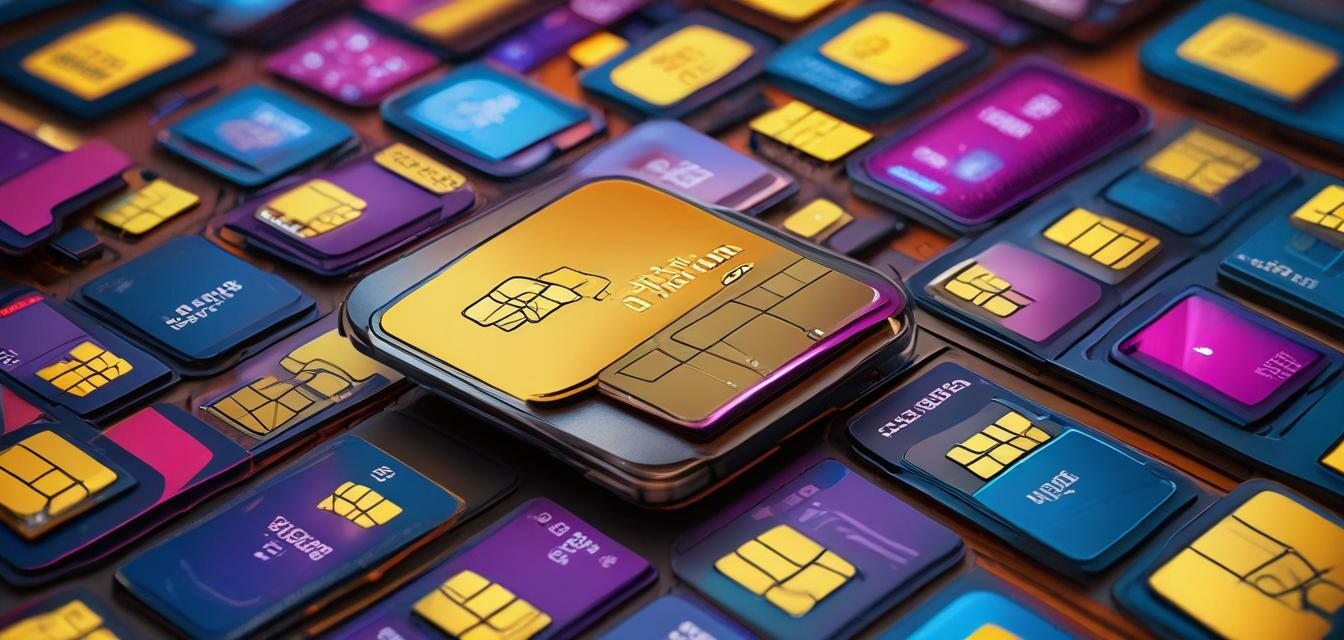
Innovations in SIM Card Technology for 2024
- In 2024, the SIM card industry is adopting eSIM technology more prominently, providing flexible connectivity options for travelers.
- New SIM card designs are focused on organization and travel efficiency, simplifying how users manage multiple cards.
- Regulatory changes are promoting the use of universal SIM cards, making global travel easier.
- Innovations are targeting features like higher data speeds and expanded network access, enhancing travel experiences.
- Stay updated on trends to leverage new offerings that optimize travel connectivity.
The world of SIM card technology is rapidly evolving, and 2024 promises exciting advancements that will profoundly impact how we travel and stay connected. From eSIM integration to enhanced security features, this article explores key innovations that will shape our travel experiences in the coming year.
The rise of eSIM technology
eSIMs (Embedded SIMs) are becoming the norm. Unlike traditional SIM cards, eSIMs are digital and can be programmed remotely. This capability allows travelers to switch networks without physically replacing a SIM card. Furthermore, eSIMs provide:
- Seamless network switching
- Greater storage capacity for multiple profiles
- Less reliance on physical components, reducing waste
Benefits of eSIM for travelers
| Feature | Benefit |
|---|---|
| Remote provisioning | Activate data plans without visiting a store |
| Multiple profiles | Store different carrier profiles for easy access |
| Increased security | Less risk of SIM swapping fraud |
For more details on how to use eSIM technology efficiently, explore our Connectivity Tips section.
New designs for SIM cards
Innovation in design is another significant trend for 2024. Manufacturers are focusing on creating user-friendly SIM card organizers and cases that cater to the travel needs. Some crucial aspects include:
- Durable materials for travel resilience
- Integrated features like ID holders
- Color coding for easy identification
SIM card cases and organizers
Tips for choosing the right SIM card case
- Look for one with a secure closure to prevent loss.
- Consider one that offers multiple slots for organization.
- Choose lightweight options for easy portability.
If you're considering optimizing your SIM card organization, check out our range of SIM card cases and SIM card organizers.
Regulatory changes affecting SIM technology
In 2024, new regulations are expected to facilitate the broader use of universal SIM cards, simplifying global communication. By standardizing SIM card protocols, travelers can:
- Easily switch carriers between countries
- Access affordable data plans without hassle
- Enjoy uninterrupted services across borders
For more news on regulatory updates, visit our News and Trends section.
Enhanced connectivity features
Innovations in technology also aim to enhance connectivity features, ensuring higher data speeds and broader network access. In 2024, travelers can expect:
- Improved compatibility with 5G networks
- Extended coverage for remote locations
- Faster data transfer speeds for on-the-go connectivity
Comparison of Connectivity Options
| Connectivity Option | Data Speeds | Ideal for |
|---|---|---|
| Traditional SIM | Up to 4G LTE | Basic browsing and messaging |
| eSIM | Up to 5G | High-speed applications and streaming |
As you prepare for your travels, make sure to keep an eye on emerging technologies. The Signal Boosters you use can significantly affect your connectivity experience, especially in remote areas.
Conclusion
As we move into 2024, staying informed about advancements in SIM card technology is essential for enhancing your travel experiences. From the adoption of eSIM to organizing solutions, these innovations promise to make global connectivity more accessible and convenient.
For updated news and insights into these developments, don't forget to subscribe to our blog at News and Trends.
Pros
- Greater flexibility with eSIM technology.
- Enhanced security with new SIM designs.
- Regulatory changes promoting universal SIM cards.
Cons
- Transitioning from traditional SIM to eSIM may be challenging for some users.
- Not all devices currently support eSIM technology.